Ditapis dengan
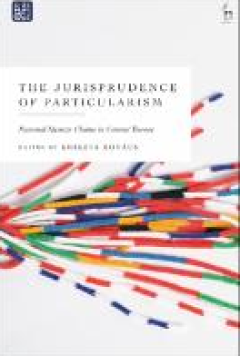
The Jurisprudence of Particularism: National Identity Claims in Central Europe
This open access book asks whether there is space for particularism in a constitutional democracy which would limit the implementation of EU law. National identity claims are a key factor in shaping our times and the ongoing evolution of the European Union. To assess their impact this collection focuses on the jurisprudence of Czechia, Hungary, Poland, and Slovakia, as they play an essential ro…
- Edisi
- -
- ISBN/ISSN
- 978-1-50996-014-9
- Deskripsi Fisik
- 253 hlm.
- Judul Seri
- -
- No. Panggil
- -
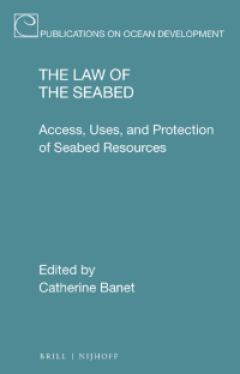
The Law of the Seabed: Access, Uses, and Protection of Seabed Resources
The Law of the Seabed offers a timely analysis of the most pressing legal questions raised by the use and protection of natural resources on and underneath the world’s seabeds. The seabed is full of mysteries, perils, and riches, along with the beauty of biological diversity. At the same time, the ocean floor is fragile and vital to the balance of the rest of the world’s interdependent ec…
- Edisi
- -
- ISBN/ISSN
- 978-90-04-39156-7
- Deskripsi Fisik
- 638 hlm.
- Judul Seri
- -
- No. Panggil
- -

Oslo Manual on Select Topics of the Law of Armed Conflict: Rules and Commentary
This book provides a valuable restatement of the current law of armed conflict regarding hostilities in a diverse range of contexts: outer space, cyber operations, remote and autonomous weapons, undersea systems and devices, submarine cables, civilians participating in unmanned operations, military objectives by nature, civilian airliners, destruction of property, surrender, search and rescue, …
- Edisi
- -
- ISBN/ISSN
- 978-3-030-39169-0
- Deskripsi Fisik
- 151 hlm.
- Judul Seri
- -
- No. Panggil
- -
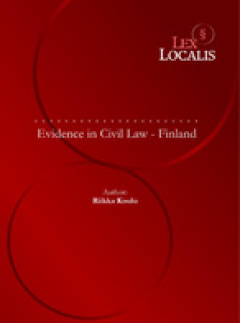
Evidence in Civil Law - Finland
Finnish civil procedure has a close connection with other Scandinavian legal systems and co-operation between the States is active. In addition, the legislation, case-law and scholarly doctrine are more and more influenced by European co-operation through the EU and Council of Europe. The principles of free disposition, free assessment of evidence, audiatur altera pars, and burden of proof form…
- Edisi
- -
- ISBN/ISSN
- 978-961-6842-47-1
- Deskripsi Fisik
- 58 hlm.
- Judul Seri
- -
- No. Panggil
- -
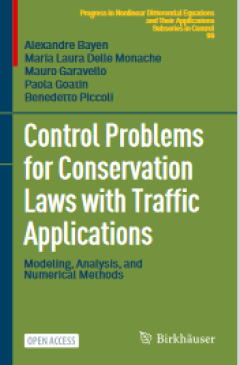
Control Problems for Conservation Laws with Traffic Applications: Modeling, A…
Conservation and balance laws on networks have been the subject of much research interest given their wide range of applications to real-world processes, particularly traffic flow. This open access monograph is the first to investigate different types of control problems for conservation laws that arise in the modeling of vehicular traffic. Four types of control problems are discussed - boundar…
- Edisi
- -
- ISBN/ISSN
- 978-3-030-93015-8
- Deskripsi Fisik
- 238 hlm.
- Judul Seri
- -
- No. Panggil
- -
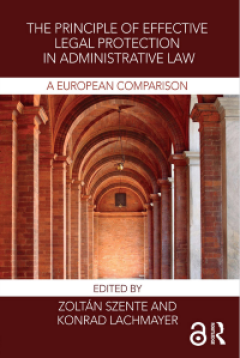
The Principle of Effective Legal Protection in Administrative Law: A European…
This collection presents a comparative analysis of the principle of effective legal protection in administrative law in Europe. It examines how European states consider and enforce the related requirements in their domestic administrative law. The book is divided into three parts: the first comprises a theoretical introductory chapter along with perspectives from International and European Law;…
- Edisi
- -
- ISBN/ISSN
- 978-1-315-55397-9
- Deskripsi Fisik
- 416 hlm.
- Judul Seri
- -
- No. Panggil
- -

The Cambridge Handbook of Investment-Driven Intellectual Property
This handbook challenges the conventional wisdom that intellectual property is the law of creativity. Traditionally, IP has been instrumental for protecting creations of the mind, with only inventors of original works enjoying exclusive rights. Related, sui generis, and quasi-IP rights, which protect monetary investments and efforts rather than originality and inventiveness, were considered exc…
- Edisi
- -
- ISBN/ISSN
- 978-1-108-83919-8
- Deskripsi Fisik
- 369 hlm.
- Judul Seri
- Cambridge Law Handbooks
- No. Panggil
- 346.04 Bon c
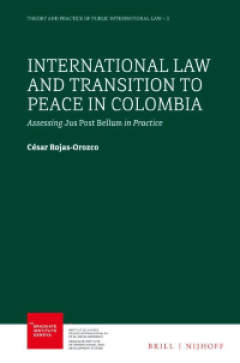
International Law and Transition to Peace in Colombia: Assessing Jus Post Bel…
In International Law and Transition to Peace in Colombia, César Rojas-Orozco analyses the role of international law in transition from armed conflict to peace, by using the analytical framework of jus post bellum and Colombia as a case study. While contemporary attention to jus post bellum has focused on its theoretical development and regarding international warfare, this book is the first wo…
- Edisi
- -
- ISBN/ISSN
- 978-90-04-44053-1
- Deskripsi Fisik
- 206 hlm.
- Judul Seri
- -
- No. Panggil
- -

Digitization and the Law
New technologies mean new challenges for the law. The Internet is no longer new territory, but critical topics such as cyberattacks, privacy, the protection of minors and cloud computing have by no means been discussed. Increasing digitalization and technology are not limited to the World Wide Web. Automated road traffic is also a forward-looking topic whose development must be legally supported.
- Edisi
- -
- ISBN/ISSN
- 978-3-8452-8930-4
- Deskripsi Fisik
- 140 hlm.
- Judul Seri
- -
- No. Panggil
- -

Politics, Policy, and Public Options
A public option is a government-provided social good that exists alongside a similar privately provided good. While the public option is typically identified with health care policy, public options have been a longstanding feature of American life in a variety of sectors, ranging from libraries to swimming pools. Public schools, for example, coexist alongside private schools. However, there is …
- Edisi
- -
- ISBN/ISSN
- 978-1-108-76755-2
- Deskripsi Fisik
- 186 hlm.
- Judul Seri
- -
- No. Panggil
- -
 Karya Umum
Karya Umum  Filsafat
Filsafat  Agama
Agama  Ilmu-ilmu Sosial
Ilmu-ilmu Sosial  Bahasa
Bahasa  Ilmu-ilmu Murni
Ilmu-ilmu Murni  Ilmu-ilmu Terapan
Ilmu-ilmu Terapan  Kesenian, Hiburan, dan Olahraga
Kesenian, Hiburan, dan Olahraga  Kesusastraan
Kesusastraan  Geografi dan Sejarah
Geografi dan Sejarah